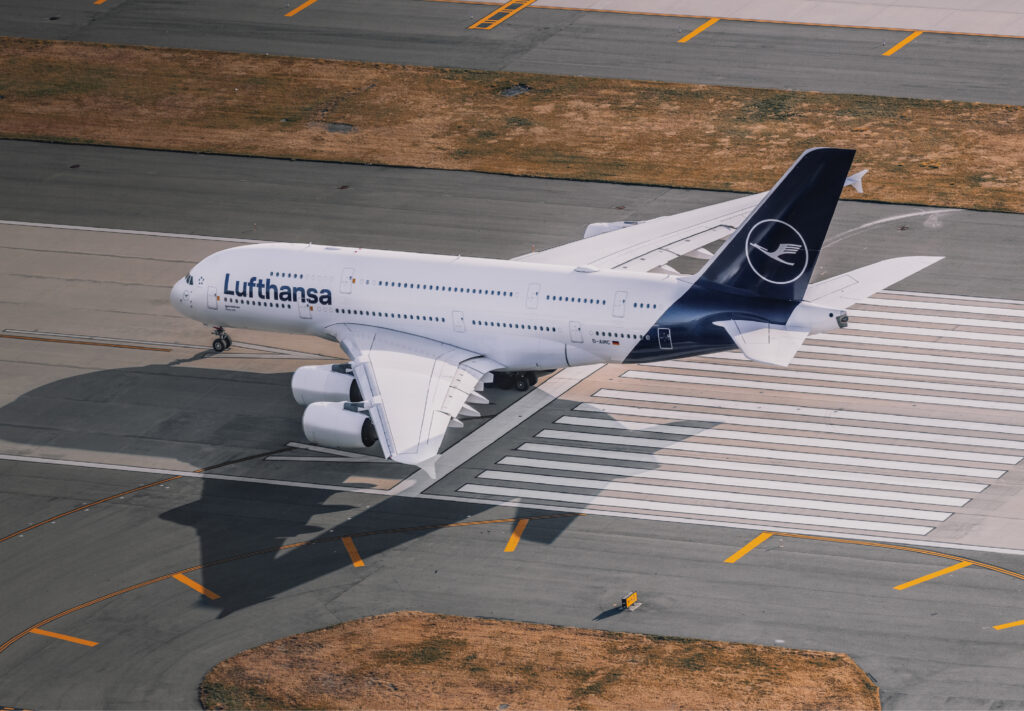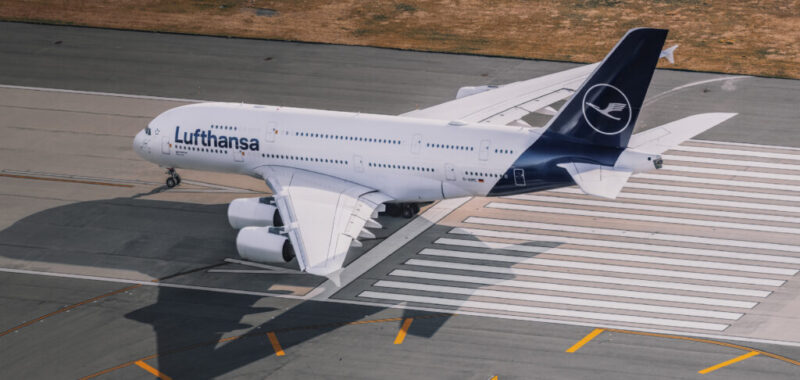
The world’s largest passenger aircraft is heading for Colorado. German flag carrier Lufthansa is rostering the Airbus A380 between Munich and Denver for the coming summer season.
It will be the first time the double-decker A380 has operated scheduled flights to and from the Mile High City.
The inaugural super-jumbo service will touch down on April 30, and operate one of two daily links from Munich this summer.
Flight LH480 leaves Munich at 11:15 a.m. and lands in Denver at 1:45 p.m. local time. The enormous aircraft is turned around in two and a half hours, ahead of its overnight return journey. LH481 departs Colorado at 4:15 p.m. and arrives in Germany at 10:50 a.m. the following morning.
The A380’s Enduring Appeal
Some of Lufthansa’s A380s are now 15 years old. Despite being leapfrogged by newer jets such as the A350, Heiko Reitz, the airline’s chief commercial officer, said the plane is still hugely popular. “Passengers, airport visitors, and crews love the A380, the flying experience, and the feeling of space.”
The last A380 was produced in 2021 and delivered to Emirates. The Dubai-based airline is easily the world’s largest operator, with more than 100 of the type in active service.
Almost all A380 operators grounded the jet during the pandemic. Carriers such as Air France, Thai Airways, and China Southern did not return the aircraft to service citing high fuel and maintenance costs.
Other airlines took a more measured approach and delayed returning the plane to service, pending an uptick in traffic. With chronic supply chain and delivery delays, those that stored, rather than scrapped, the A380 are finding it to be a valuable asset once again.
Etihad Airways and Qatar Airways are among the carriers that have brought the plane back from an extended slumber. Both airlines use the aircraft on busy routes that serve slot-constrained airports such as London Heathrow. Qantas, British Airways, and Singapore Airlines are other key operators.
Lufthansa Taps Premium Travelers
The soaring demand for premium travel is well-documented. Leisure travelers are upgrading more often, and corporate travel is also making a slow but steady comeback. Notably, the A380 offers more premium seats than any other in the Lufthansa fleet, allowing the airline to tap into this lucrative trend.
The airline operates the A380 in a four-class configuration carrying up to 509 passengers. It offers eight seats in first class, 78 in business, 52 in premium economy, and 371 in economy.
Denver will be Lufthansa’s sixth A380 destination. Delhi is the only city on the airline’s A380 network not in the United States. The carrier also serves New York JFK, Boston, Washington, and Los Angeles with the super-jumbo.
While Denver is a destination in its own right, Lufthansa will have also considered its transit appeal. The Colorado airport is a huge hub for United Airlines – a founding member, with Lufthansa, of the Star Alliance. This allows passengers to connect in Denver to a further 170 destinations without separate ticketing.
Lufthansa highlights Phoenix, Las Vegas, and Honolulu as onward destinations it expects to be popular, particularly given the German airline does not offer nonstop flights to any of these cities.
Adding the A380 to Denver is new, but the city has long been on the Lufthansa route map. The German carrier launched flights from its Frankfurt hub in 2000 and has been flying nonstop from Munich for nine years. The airline’s summer 2025 schedule sees a total of four daily flights from Germany – two from Munich and two from Frankfurt.
‘Lufthansa’s Lufthansa Problem’
Looking beyond the A380 fanfare, the broader Lufthansa Group is in a challenging spot.
Its latest financial results painted a mixed picture, with executives acknowledging the group’s earnings position “deteriorated significantly” in the first nine months of 2024. This was despite record-breaking revenues and overall capacity growth.
Disappointing results at the core Lufthansa Airlines brand were a particular challenge. To combat what Airline Weekly senior analyst Jay Shabat coined as “Lufthansa’s Lufthansa Problem,” management recently launched a turnaround plan to boost results at the German flag carrier.
The goal is to improve efficiency, reduce complexity, and enhance quality at the airline. The strategy was formally launched in late 2024 and includes moving more short-haul flights to lower-cost subsidiaries.
Further savings are expected “through network optimization and increasing flexibility and automation.” Among the changes is a reduction in the airline’s flights to and from China. October saw Lufthansa’s last scheduled Frankfurt to Beijing service, leaving Munich as its only nonstop route to the Chinese capital.
Should all go to plan, Lufthansa’s problem child status should be a thing of the past by the end of 2026, with the measures forecast to lift earnings by €1.5bn ($1.6bn).
Airlines Sector Stock Index Performance Year-to-Date
What am I looking at? The performance of airline sector stocks within the ST200. The index includes companies publicly traded across global markets including network carriers, low-cost carriers, and other related companies.
The Skift Travel 200 (ST200) combines the financial performance of nearly 200 travel companies worth more than a trillion dollars into a single number. See more airlines sector financial performance.
Read the full methodology behind the Skift Travel 200.

